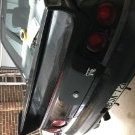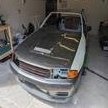Need Some Advice...
Announcements
-
Similar Content
-
Latest Posts
-
By GabsReDeal · Posted
Definitely do-able haha. I will give it a try if the fuel pump hanger does not solve the issue. Just need to find some quiet time in the area, Malta is like a big city and I live right next to the main hospital so it is very busy during the day. I'll be installing it in about 2 weeks, found a garage that is pretty knowledgeable and has the necessary tools. This garage has worked on multiple builds, even for competitions. They even asked me to stay with, so I should be fine. -
By GTR32 Jeff · Posted
Just to add, I found the r32 gtr ecu the most forgiving, the r33 one would get the shits. -
By GTR32 Jeff · Posted
For what it’s worth I drove my gtr for over a decade with gt-ss as a true daily after I pulled off the -5s, I had it engineered and went with stock ecu etc. never skipped a beat. I would only worry if you can’t get good fuel all the time in a tropical paradise -
I bought an engine from a friend of a friend many years ago, it was sold to me as a RB25det Neo. recently I started pulling it apart and noticed that the intake manifold was pretty different from others that I had seen on RB engines so did a bit of research and found that it was a non turbo manifold. So I’m sceptical now that it is a NEO DET and just thinking it’s a NEO DE (it does have a turbo strapped to it currently). can you identify the engine model from the numbers on the block?






Recommended Posts
Create an account or sign in to comment
You need to be a member in order to leave a comment
Create an account
Sign up for a new account in our community. It's easy!
Register a new accountSign in
Already have an account? Sign in here.
Sign In Now